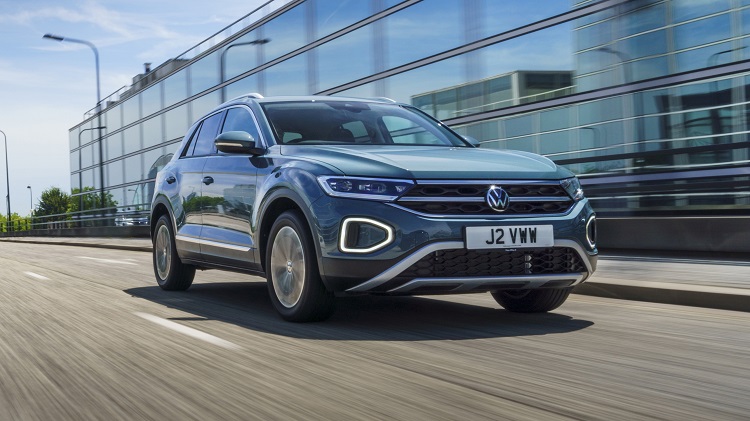Is Automotive news Right for [Customer Pain Point]? a Detailed Review
![Is Automotive news Right for [Customer Pain Point]? a Detailed Review](https://www.thefastfurious.com/wp-content/uploads/2023/06/Automotive-news-Right-for-Customer-Pain-Point.jpg)
The automotive industry is one of the largest and most important industries in the world. It has been a driving force behind economic growth, technological advancements, and social change for over a century. However, the industry is facing unprecedented challenges as it navigates through a rapidly changing landscape. From the rise of electric vehicles to the development of autonomous technology, there are many factors that are shaping the future of this industry. In this article, we will explore the current state of the automotive industry, examine how it is evolving, and discuss what the future may hold for this vital sector.
The State of the Automotive Industry
The automotive industry has been a vital part of the global economy for decades. However, in recent years, it has faced numerous challenges that have significantly impacted its growth and profitability. One of the most significant issues facing the industry is the decline in demand for traditional gasoline-powered vehicles. This trend is due to several factors, including rising fuel costs, environmental concerns, and changing consumer preferences.
Another challenge that the automotive industry faces is increased competition from new entrants into the market. Companies such as Tesla and Google are disrupting the traditional automotive landscape by introducing innovative technologies like electric cars and autonomous driving systems. These new players are challenging established automakers to adapt quickly or risk being left behind.
Despite these challenges, there are still opportunities for growth in the automotive industry. The rise of electric vehicles presents a significant opportunity for automakers to develop new products and services that meet evolving customer needs. Additionally, advancements in technology such as artificial intelligence and machine learning offer exciting possibilities for improving vehicle safety and performance.
In conclusion, while there are certainly challenges facing the automotive industry today, it remains an essential part of our global economy with significant potential for growth and innovation in the future.
The changing landscape of the automotive market
The automotive market is constantly evolving, and the landscape of the industry is changing rapidly. One of the most significant changes in recent years has been the rise of ride-sharing services like Uber and Lyft. These services have disrupted traditional car ownership models and have led to a shift in consumer behavior.
Another major change in the automotive market is the increasing popularity of crossover SUVs. These vehicles offer a combination of utility, comfort, and style that has resonated with consumers. As a result, many automakers have shifted their focus away from sedans and toward crossovers.
In addition to these changes, there has also been a growing demand for advanced safety features and connectivity options in vehicles. Consumers are looking for cars that can keep them safe on the road while also providing seamless integration with their smartphones and other devices.
Overall, the changing landscape of the automotive market presents both challenges and opportunities for automakers. Those who are able to adapt to these changes will be well-positioned for success in the years ahead.
The Future of the automotive industry
As we look ahead to the future of the automotive industry, there are several exciting developments on the horizon. One of the most significant changes is the increasing focus on sustainability and environmental responsibility. With concerns about climate change growing, automakers are investing heavily in electric and hybrid vehicles that produce fewer emissions than traditional gasoline-powered cars.
Another trend that is likely to shape the future of the industry is the continued development of autonomous vehicles. While fully self-driving cars may still be a few years away, many automakers are already incorporating advanced driver assistance features into their vehicles. These technologies have the potential to greatly improve safety on our roads while also making driving more convenient and enjoyable.
Overall, it’s an exciting time for the automotive industry as we see new technologies and innovations emerge at a rapid pace. As consumers become more conscious of their impact on the environment and demand greater convenience and safety features, automakers will need to continue pushing boundaries and exploring new possibilities to stay ahead of the curve.
The impact of autonomous vehicles
Autonomous vehicles, also known as self-driving cars, have been a topic of discussion in the automotive industry for several years now. These vehicles are equipped with advanced technology that allows them to operate without human intervention. The impact of autonomous vehicles on the automotive industry is significant and far-reaching.
One of the most significant impacts of autonomous vehicles is their potential to reduce accidents caused by human error. According to the National Highway Traffic Safety Administration (NHTSA), 94% of all car accidents are caused by human error. Autonomous vehicles can eliminate this factor, making roads safer for everyone. Additionally, self-driving cars could increase mobility for those who are unable to drive due to age or disability.
However, there are also concerns about the impact of autonomous vehicles on employment in the transportation sector. As more companies invest in self-driving technology, it is possible that jobs such as truck driving and taxi driving may become obsolete. It will be important for policymakers to address these concerns and ensure that workers are not left behind in this technological shift.
Overall, while there are both benefits and challenges associated with autonomous vehicles, it is clear that they will play a significant role in shaping the future of the automotive industry.
The electric vehicle revolution
The automotive industry is currently undergoing a significant shift towards electric vehicles. With the increasing concern for the environment and the need to reduce carbon emissions, electric vehicles have emerged as a viable alternative to traditional gasoline-powered cars. The adoption of electric vehicles has been slow in the past due to concerns over range anxiety and high costs, but recent advancements in battery technology have made them more practical and affordable.
Many major automakers are investing heavily in electric vehicle development, with some even committing to phasing out gas-powered cars entirely. Tesla has been at the forefront of this revolution, with their Model S becoming one of the most popular electric cars on the market. Other automakers such as General Motors and Ford have also introduced their own electric models.
The benefits of electric vehicles go beyond just reducing carbon emissions. They also offer lower operating costs, quieter rides, and smoother acceleration. As battery technology continues to improve, we can expect even more advancements in electric vehicle performance and affordability. The future of the automotive industry is undoubtedly electric, and it’s exciting to see how this revolution will continue to unfold in the coming years.
Conclusion
In conclusion, the automotive industry is undergoing a significant transformation. The emergence of autonomous vehicles and electric cars has disrupted the traditional market, leading to new opportunities and challenges for automakers. While some may view these changes as a threat to the industry’s stability, others see them as an opportunity for growth and innovation. As we move forward, it will be interesting to see how automakers adapt to these changes and continue to meet the evolving needs of consumers. One thing is certain – the future of the automotive industry is exciting and full of possibilities.





